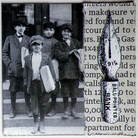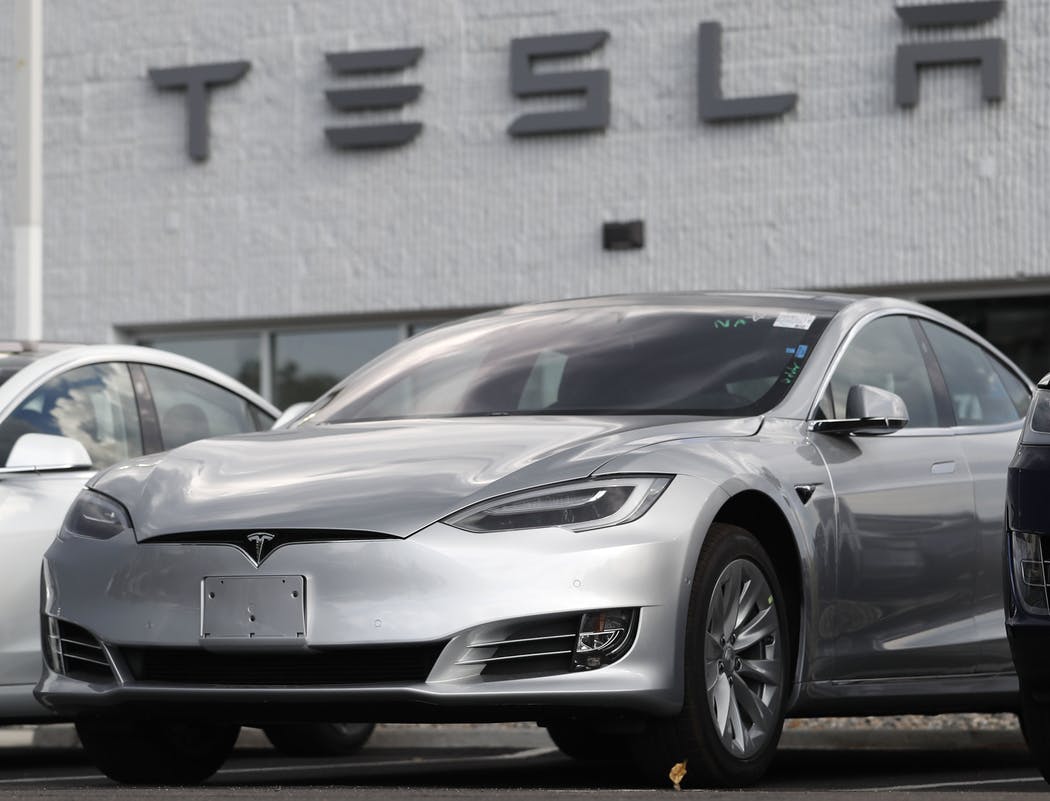| BUSINESS 51110198 Tesla Model 3 riding a bumpy road. Sluggish demand leads to price cuts, stock warnings. By Neal E. Boudette New York Times JUNE 10, 2019 — 9:00PM |
Tesla's Model 3 electric sedan was heralded this year by Consumer Reports as the most satisfying car on the market. Then owners started to complain that cars had arrived with cracked windows, leaks or unreliable video screens. In some places, Tesla turned to outside body shops to repair scratches and other paint defects before cars were delivered to customers.
In Rocklin, Calif., near Sacramento, Kniesel's Collision has a steady business touching up unsold cars for the nearby Tesla delivery center.
"Sometimes transport damages the paint," said Justin Kniesel, the chain's director of operations. "Sometimes there are issues from the factory."
Tesla said it has made design and manufacturing improvements in recent months that have significantly reduced quality problems. But the company and its chief executive, Elon Musk, are contending with some more fundamental blemishes.
Demand for the Model S luxury sedan and Model X SUV is so sluggish that the automaker recently cut prices to lure buyers. New questions have arisen about Tesla's self-driving technology. And some of the company's staunchest backers have turned bearish. In the first three months of the year, T. Rowe Price, once one of its biggest shareholders, sold off 80% of its shares in the company, according to regulatory filings.
By the start of last week, Tesla's stock was at a three-year low. It rallied after reports in two online publications lifted hopes for a sales rebound in the second quarter, a prospect that Musk cited in an e-mail to employees in May. Even so, the shares are down more than 40% in the past six months, wiping out almost $30 billion in value.
One sign of Wall Street's ebbing confidence came from Adam Jonas, a Morgan Stanley analyst who long held high expectations for Tesla as an investment. In a recent report, he set his target price for the stock — now trading around $200 a share — at $230 and said it could go to $391 if the company achieved robust sales in China and advances in self-driving technology and ride services. But he also warned that the share price could fall to $10 if Tesla's strategies did not pan out.
Rather than a fast-growing tech company, he told clients in a conference call, Tesla now looks like a "distressed credit and restructuring story."
Tesla remains a force in the industry. The Model 3, on the market only about a year, is the top-selling midsize luxury car, outpacing popular gas-powered models like the BMW 3 Series and Mercedes-Benz C-Class. Audi, Mercedes and Jaguar have produced electric models, but none have matched Tesla's in battery range.
And as the year began, the company's toughest problems seemed to be in the past. After initial production troubles with the Model 3, its assembly line in Fremont, Calif., was churning out the new sedan, and customers were flocking to its stores. It reported profits for both the third and fourth quarters of 2018. Musk felt confident enough to predict the company would remain profitable "every quarter going forward."
But its business has gotten off track. On Jan. 1, the federal tax credit available to Tesla customers fell to $3,750 from $7,500. That effectively increased the cost of its cars and caused sales to slow in the United States. Sales of the Model 3 in Europe and China got off to a bumpy start. After laying off 7% of its workforce, Tesla reported a first-quarter loss of $702 million. The company expects to lose money again in the second quarter.
The recent concerns go beyond Tesla's bottom line. Its autopilot driver-assistance system has come under renewed scrutiny after a Model 3 hit a semitrailer truck in Florida, killing the driver. Autopilot was operating, and neither it nor the driver activated the brakes.
Still, the company said the system significantly reduced the likelihood of crashes. In the first quarter of the year, Tesla drivers using autopilot had one crash for every 2.87 million miles driven, the company said, while data from federal safety regulators shows that the national average for all vehicles is one every 436,000 miles.
Other hurdles lie ahead. On July 1, the tax credit for Tesla buyers will decline again, to $1,875, and that could further hamper sales in the United States, said Jeffrey Osborne of the investment bank Cowen & Co.
"Most people think that's when the rubber meets the road," he said.



 RSS Feed
RSS Feed